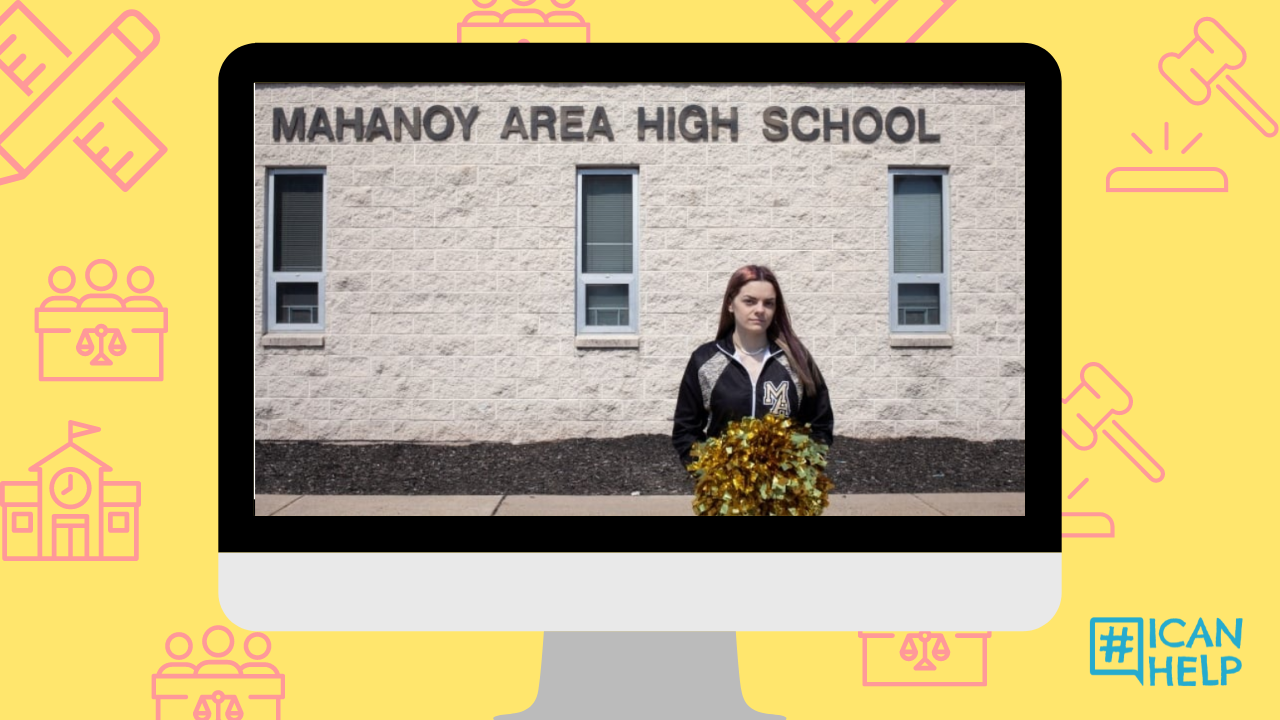Mahanoy Area School District v. BL: Snapchat, Sports, and Student Speech
Jul 18, 2021
"If this supreme court decision teaches any lesson, it must be that the regulation of many types of off-premises student speech raises serious First Amendment concerns, and school officials should proceed cautiously before venturing into this territory. "
- Mahony School District v. B.L 594 US, (2021) (Alito and Gorsuch J.J., concurring).
In 2017, Brandi Levy, 14, learned she didn’t make the varsity cheerleading team at an off-campus convenience store. Levy posted her frustration on Snapchat and expressed herself raising her middle finger and captioned the post, “F— school, F— softball, F— cheer, F— everything!”
She shared the post with only a few select friends, but one of her teammates showed it to the cheerleading coaches, who then suspended Levy from the JV team for a year.
In response, with the help of the American Civil Liberties Union (ACLU), Levy’s father sued the school Mahanoy Area School District under the First Amendment’s free speech clause.
On June 23, 2021, the Supreme Court ruled in favor of Brandi Levy, declaring Mahanoy Area High School violated Levy’s First Amendment rights when it punished her for expressing her discontent in not making the school’s varsity cheerleading squad. This is good news for students, solidifying their right to freedom of speech.
“The First Amendment permits public schools to regulate some student speech that does not occur on school premises during the regular school day; this authority is more limited than the authority that schools exercise with respect to on-premises speech...” Mahony School District v. B.L 594 US, (2021) (Alito and Gorsuch J.J., concurring).
While school officials stand in a parent’s place when students are on school grounds, this rarely applies to off-campus speech. Like all other American citizens, public school students have the right to express ideas, even when expressing those ideas in language that some find inappropriate or hurtful. Public schools must teach students that freedom of speech, including unpopular speech, is essential to our form of self-government.
The court found Levy’s post didn't include "serious or severe bullying or harassment targeting particular individuals or threats aimed at any student or teacher," which, per school policy, would have given the school grounds for punishment. The court’s decision broadens students’ off-campus freedom of speech, so long as they are not making threats or engaging in behavior that could be considered bullying or harassment.
Although it’s not unusual for teenagers to let off steam on social media, students must understand their words can have a lasting effect. Let us remember and consider that although student’s free speech is protected by the Constitution (Mahoney v. B.L, and Tinker v. Des Moines), students are not let off the hook quite yet.
We’re all digital citizens and have the freedom to use the internet for good or for bad. And we sometimes unload our emotions onto social media without stopping to consider who might see or who might judge us. Engaging in self-expression with good judgment is tough, especially when our emotions are running high. Whatever we choose to share, we need to remember we can be (and are) held accountable for what we post on the internet, even if it’s only in the court of public opinion.
Stay connected with news and updates!
Join our mailing list to receive the latest news and updates from our team.
Don't worry, your information will not be shared.
We hate SPAM. We will never sell your information, for any reason.


